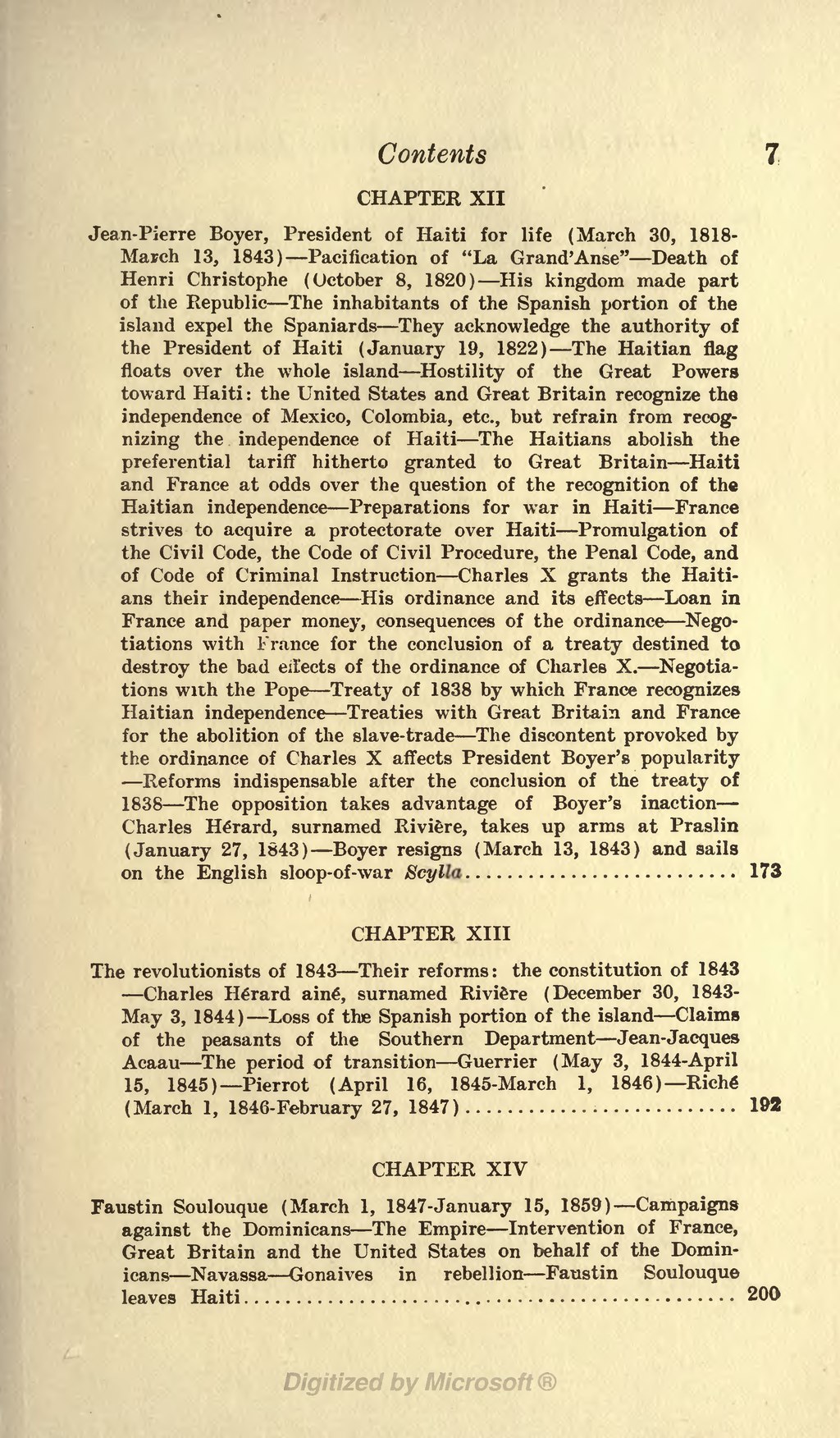This page has been validated.
Contents
7
| CHAPTER XII | |
| Jean-Pierre Boyer, President of Haiti for life (March 30, 1818–March 13, 1843)—Pacification of "La Grand'Anse"—Death of Henri Christophe (October 8, 1820)—His kingdom made part of the Republic—The inhabitants of the Spanish portion of the island expel the Spaniards—They acknowledge the authority of the President of Haiti (January 19, 1822)—The Haitian flag floats over the whole island—Hostility of the Great Powers toward Haiti: the United States and Great Britain recognize the independence of Mexico, Colombia, etc., but refrain from recognizing the independence of Haiti—The Haitians abolish the preferential tariff hitherto granted to Great Britain—Haiti and France at odds over the question of the recognition of the Haitian independence—Preparations for war in Haiti—France strives to acquire a protectorate over Haiti—Promulgation of the Civil Code, the Code of Civil Procedure, the Penal Code, and of Code of Criminal Instruction—Charles X grants the Haitians their independence—His ordinance and its effects—Loan in France and paper money, consequences of the ordinance—Negotiations with France for the conclusion of a treaty destined to destroy the bad effects of the ordinance of Charles X—Negotiations with the Pope—Treaty of 1838 by which France recognizes Haitian independence—Treaties with Great Britain and France for the abolition of the slave-trade—The discontent provoked by the ordinance of Charles X affects President Boyer's popularity—Reforms indispensable after the conclusion of the treaty of 1838—The opposition takes advantage of Boyer's inaction—Charles Hérard, surnamed Rivière, takes up arms at Praslin (January 27, 1843)—Boyer resigns (March 13, 1843) and sails on the English sloop-of-war Scylla. | 173 |
| CHAPTER XIII | |
| The revolutionists of 1843—Their reforms: the constitution of 1843—Charles Hérard ainé, surnamed Rivière (December 30, 1843–May 3, 1844)—Loss of the Spanish portion of the island—Claims of the peasants of the Southern Department—Jean-Jacques Acaau—The period of transition—Guerrier (May 3, 1844–April 15, 1845)—Pierrot (April 16, 1845–March 1, 1846)—Riché (March 1, 1846–February 27, 1847). | 192 |
| CHAPTER XIV | |
| Faustin Soulouque (March 1, 1847–January 15, 1859)—Campaigns against the Dominicans—The Empire—Intervention of France, Great Britain and the United States on behalf of the Dominicans—Navassa—Gonaives in rebellion—Faustin Soulouque leaves Haiti | 200. |
